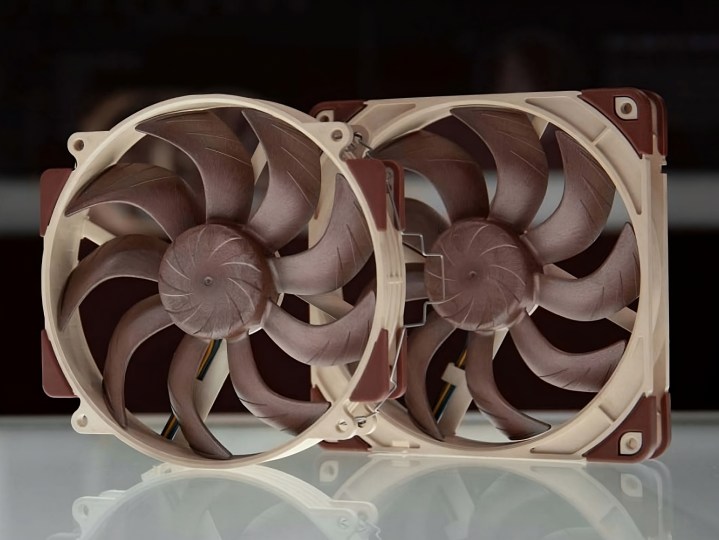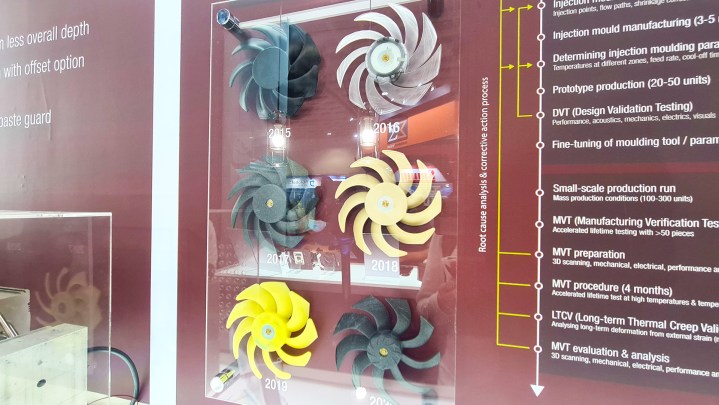Noctua already makes some of the best PC fans out there, and now its arsenal is about to receive what seems to be a huge boost. As revealed during Computex, Noctua is working on a 140mm fan that’s expected to outperform the competition, including Noctua’s own products.
The yet-unnamed 140mm fan has had a rocky development that took many years, but it’s finally nearing completion. And it looks like it’s not going to be cheap.

Noctua may not be quite ready to send this fan off into the wild just yet, but PCGamer was able to talk to Noctua’s Dan Carter at Computex and learn more about the company’s latest creation. As the publication reports, Noctua has spent eight long years working on its new fan. Now, it looks like the company is readying itself for a potential launch in early 2024, so it’ll have gone through nine years of development by the time it hits the shelves. That’s a really long time to spend on a single PC fan.
Noctua ran into some issues during this long development process. For one, the cooling of the impeller (the rotating part of the fan that moves the air) had to be adjusted, because Noctua found that the impeller was expanding slightly over time — a problem that would undoubtedly cause many PC users issues a few years down the road.
The second issue is actually why the fan is supposed to be rather pricey — around $40. Due to excessive force from the clips or screws, the frame could get slightly warped. This required a change in the material used for the frame. It originally used ABS/PBT, but Noctua had to exchange it for the same material as the one used for the fan blades: liquid crystal polymer (LCP). Due to LCP’s density, the warping should no longer be a problem, but it’s a much more expensive material to work with
If $40 feels like a lot to spend on a fan, that’s because it is — but the quality of this product could make it worth it to people who really want to optimize their PC temperatures. The component is designed around optimizing airflow, and it even turns the (usually useless) central part of the fan into a cooling device thanks to the use of beveled zones that push air away into the blades. Ultimately, Noctua predicts that the 140mm fan will drop temperatures by around 3 degrees Celsius compared to the NF-A14 while maintaining the same noise level.

The upcoming 140mm fan is bigger than its current champion, the NFS12B Redux-1200, which measures 120mm. That could bring some improvements all on its own, such as quieter performance while maintaining the same or better airflow (as evidenced by the temperature drop mentioned above). Will it fit in every case? It should, but you’ll need to take precise measurements to be extra certain, especially if your case is already packing a massive GPU like the RTX 4090.
PC cooling is an often overlooked and unexciting topic when you compare it to some other components, but hey — in order to run that insane GPU, you need a capable cooler. Noctua is known for making those, and the new 140mm creation sounds like it’ll be a great thing to include in a future PC build.



